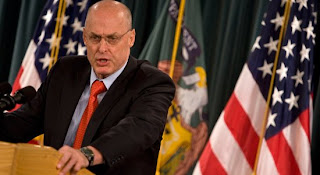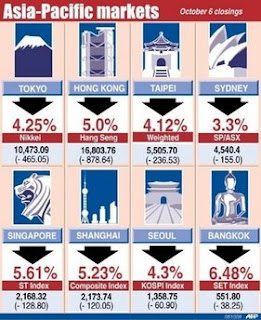Here's how BailoutSleuth comes up with its total:
- $170 billion for banks who sold preferred stock to the government
- $150 billion given to AIG -- $85 billion initially, another $25 billion, and another $40 billion
- $2 trillion in emergency loans from the Federal Reserve to banks under 11 different programs that are separate from the TARP program, and which didn't require approval by Congress















